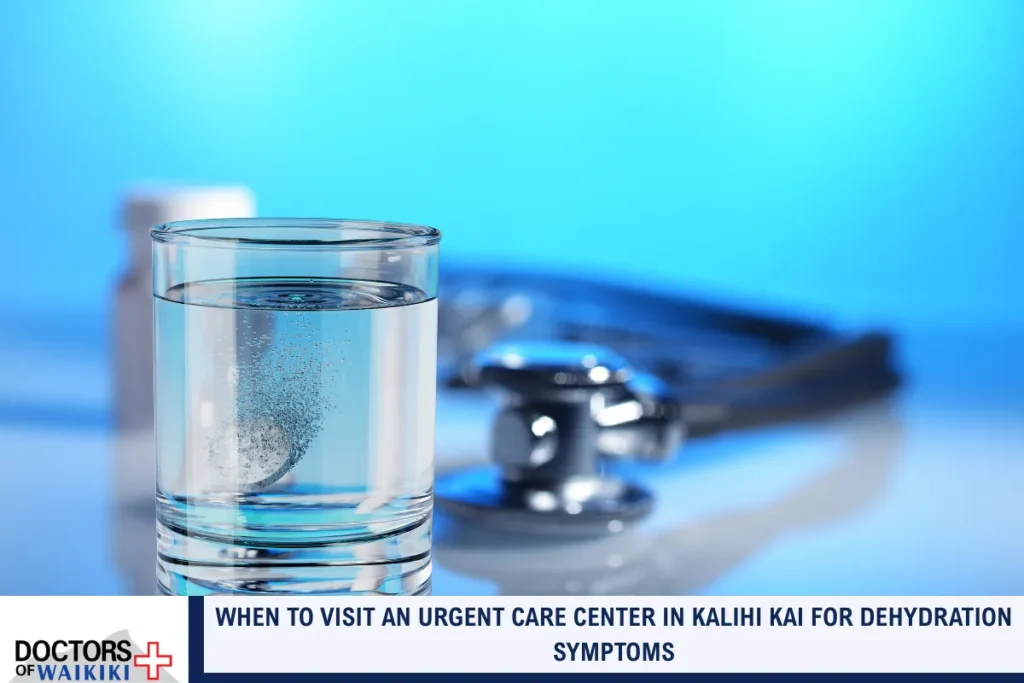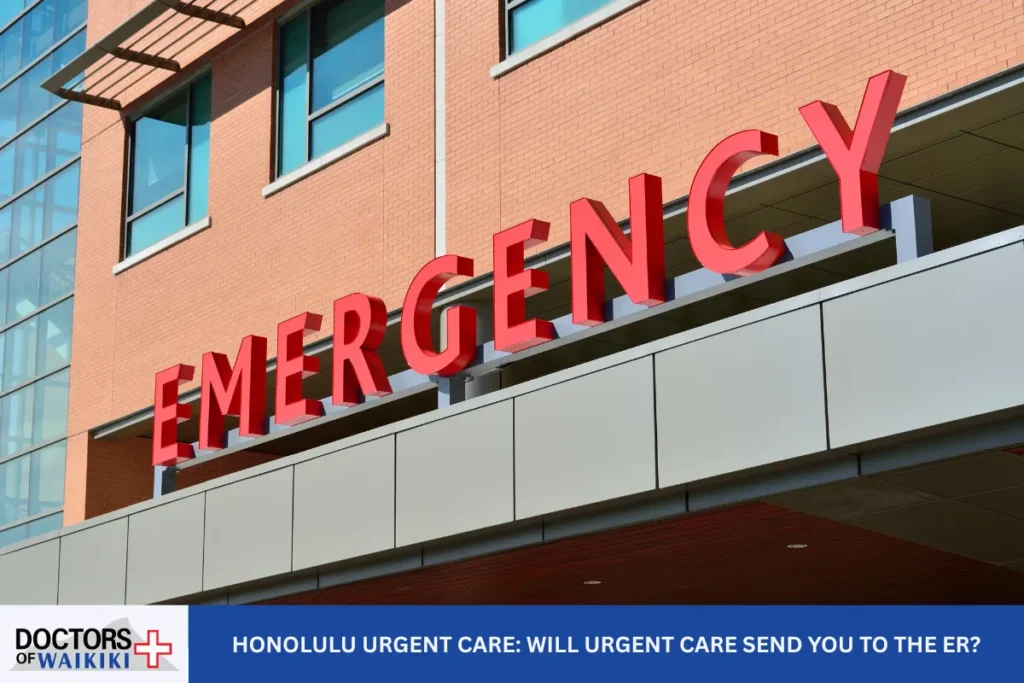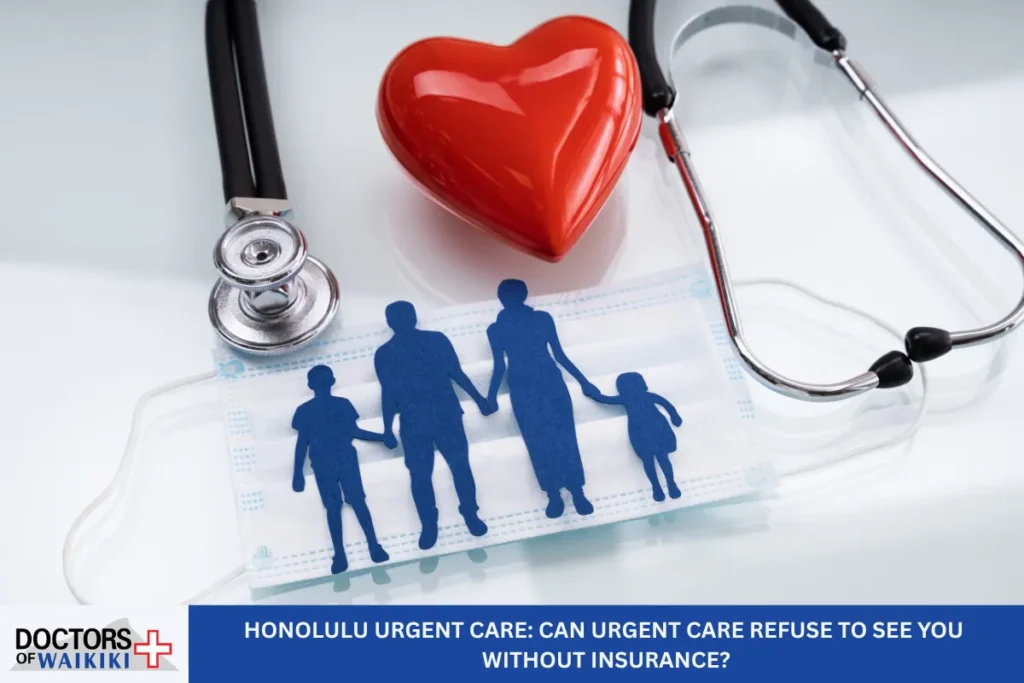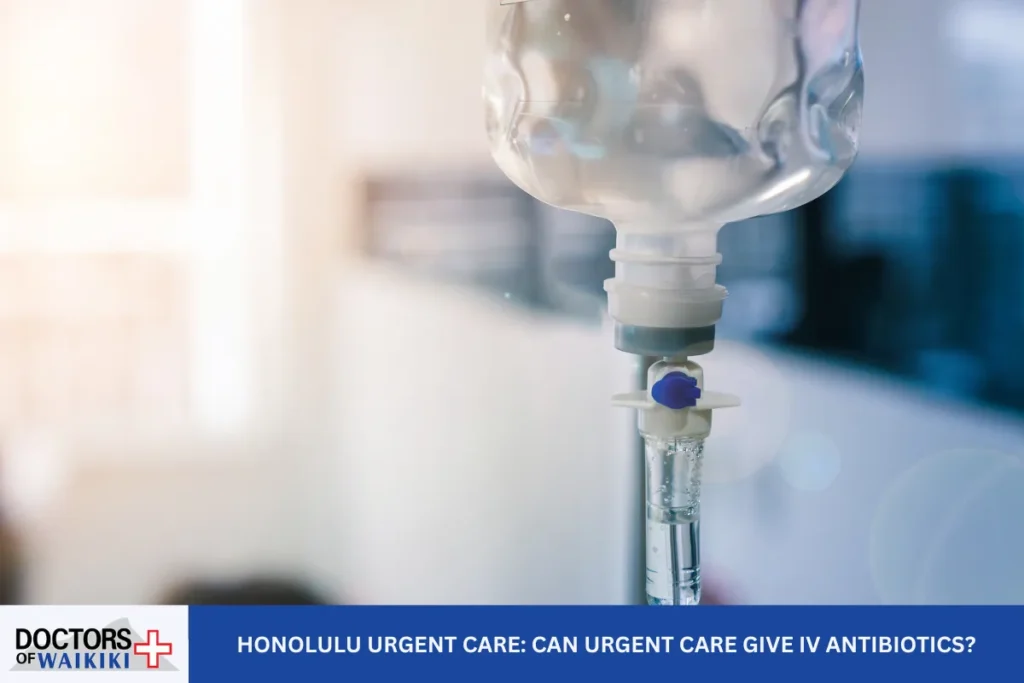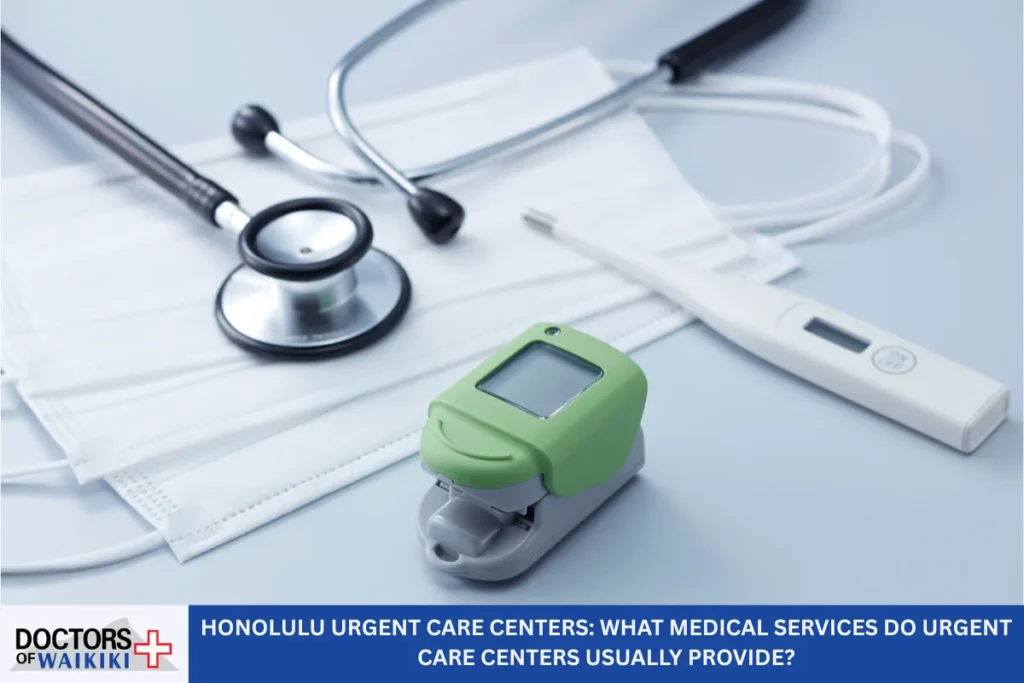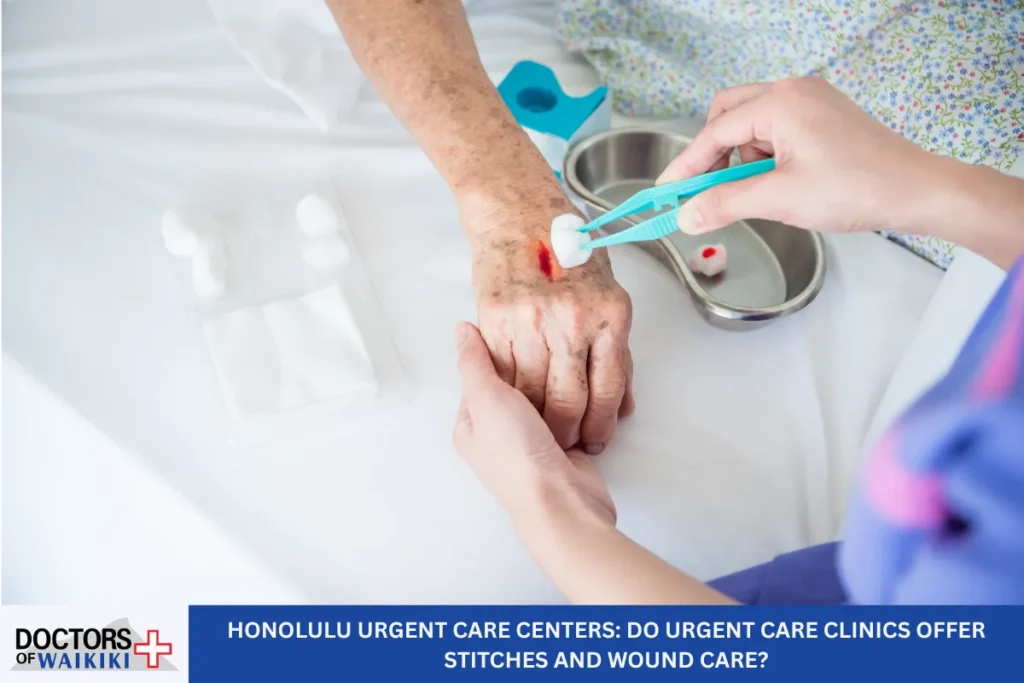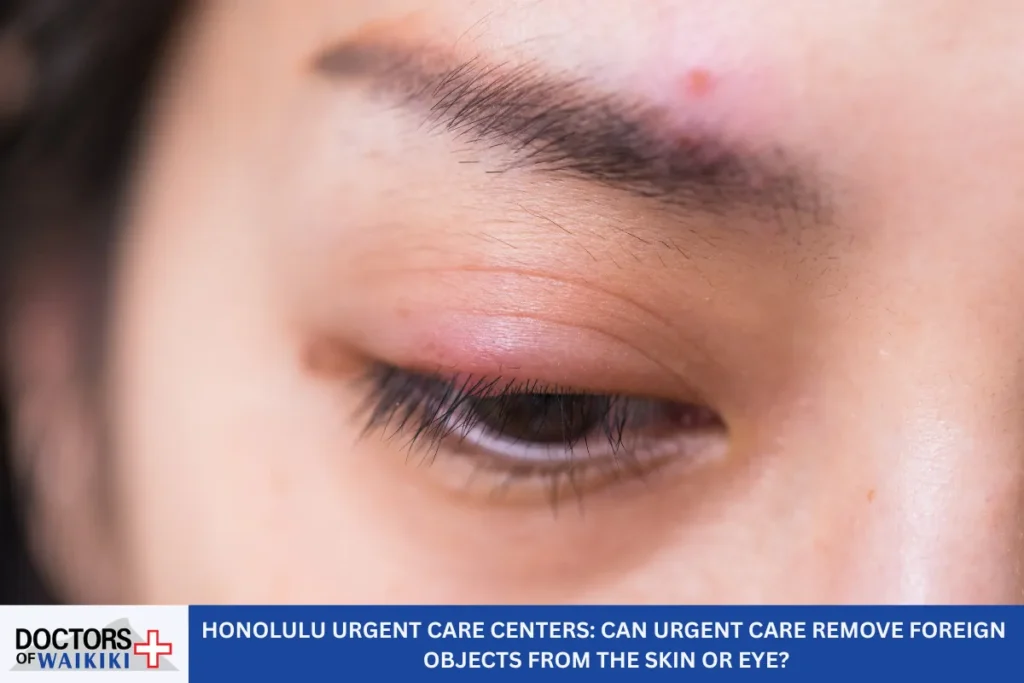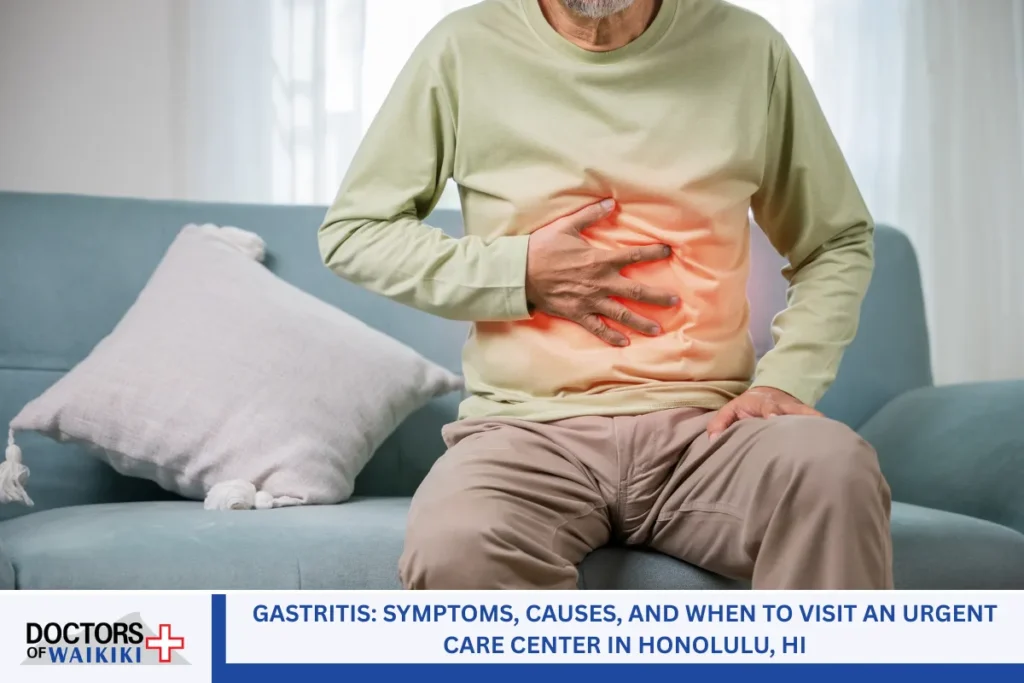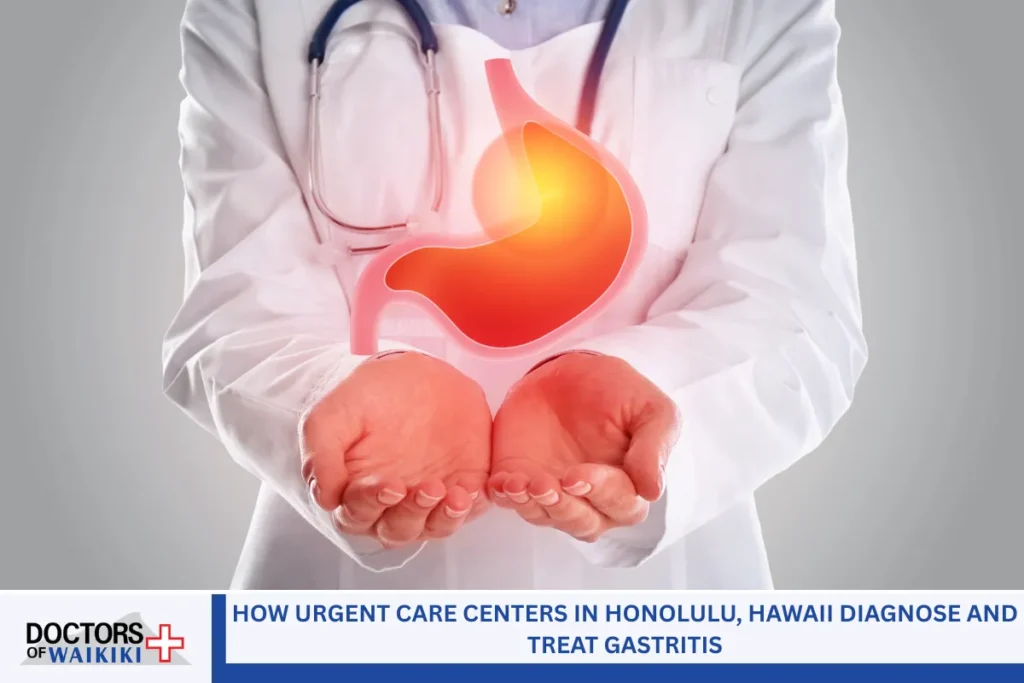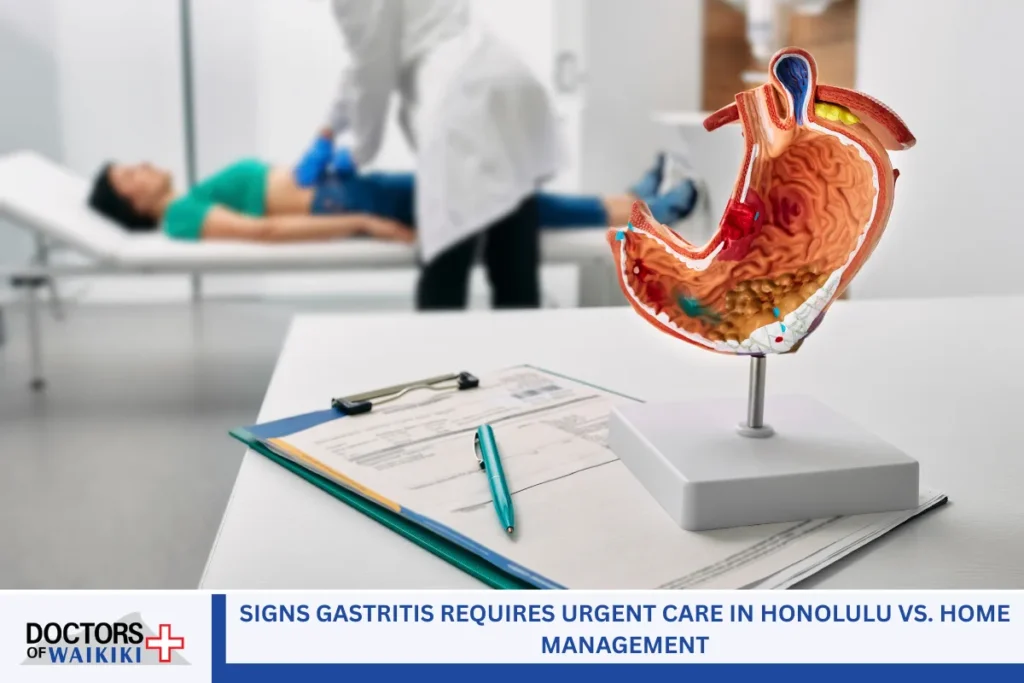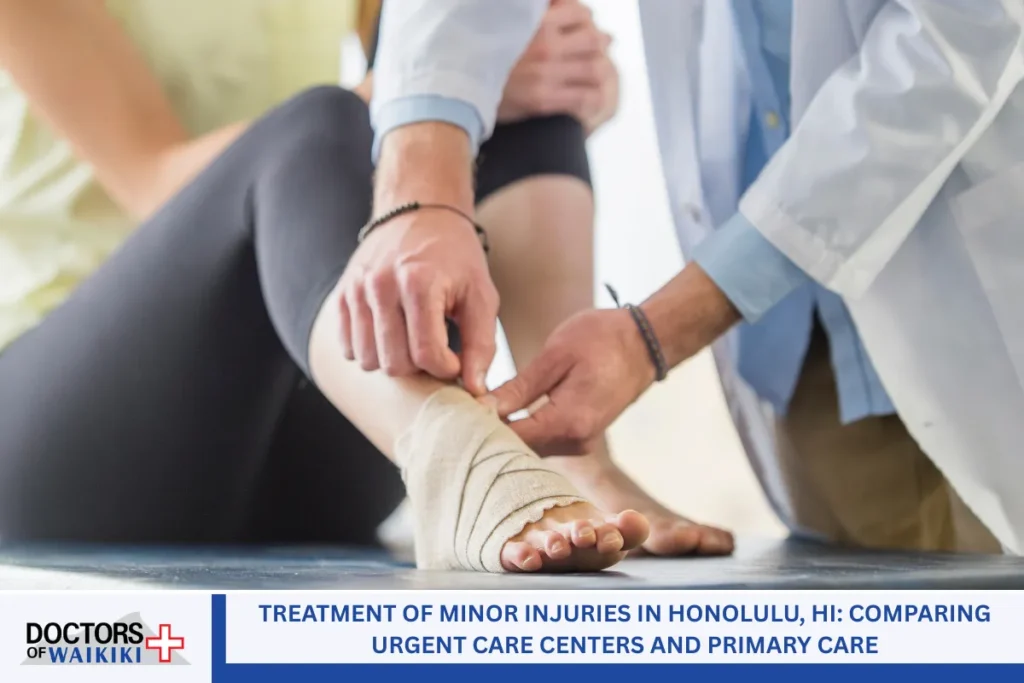An urgent care center is the best place to seek quick medical attention for moderate dehydration symptoms that don’t require emergency room treatment. Dehydration can creep up on anyone, especially in warm places like Kalihi Kai, where high heat and humidity can accelerate fluid loss. Knowing the signs, causes, and when it’s time to see a healthcare provider can prevent complications and support a faster recovery.
This guide will explain how dehydration affects the body, how to recognize early and advanced signs, who’s most at risk, and why urgent care is a smart and efficient solution for moderate cases. Every section aims to provide helpful knowledge that you can use to stay safe and know when to take action.
What Is Dehydration and How Does It Impact the Body

Dehydration happens when your body loses more fluids than it takes in. Your body depends on water for nearly every function—regulating temperature, flushing out waste, protecting organs, and lubricating joints. Even a small drop in fluid levels can affect how you think, feel, and move.
In mild cases, dehydration can cause symptoms such as dry mouth, dizziness, or fatigue. But as it progresses, it can lead to more serious health problems like fainting, confusion, or even heatstroke. That’s why staying hydrated and recognizing symptoms early is so important—especially in a tropical area like Kalihi Kai, where outdoor activity is common and the climate naturally encourages more fluid loss through sweat.
Dehydration isn’t just about being thirsty—it’s a condition that affects your body’s ability to function properly. Water also helps regulate your heart rate and blood pressure, meaning a drop in fluids can stress your cardiovascular system. In severe situations, dehydration can lead to hospitalization.
Common Causes of Dehydration in Kalihi Kai
In Kalihi Kai, there are many everyday scenarios where someone can become dehydrated, often without realizing it. Some of the most frequent causes include:
Physical Activity and Heat Exposure
When you engage in physical activity—whether exercising, working outdoors, or simply walking—your body naturally loses water through sweat. Combine that with high humidity, and your sweat doesn’t evaporate as quickly, which means your body doesn’t cool down as effectively. This can cause you to lose even more fluids without realizing it.
Illness and Infection
Dehydration often occurs when you’re sick, especially if you’re experiencing vomiting, diarrhea, fever, or infections that increase fluid loss. When you’re ill, your appetite may also decrease, making it harder to drink enough fluids to stay hydrated.
Poor Fluid Intake
Sometimes, dehydration is simply the result of not drinking enough water. This might happen if someone’s too busy, forgets, or assumes they’ve had enough without paying attention to actual fluid needs.
Chronic Conditions
Medical conditions like diabetes, kidney issues, or adrenal gland disorders can increase the risk of dehydration. Certain medications like diuretics or blood pressure drugs also increase urine output, which may lead to fluid loss.
Signs and Symptoms That Warrant Medical Attention

Recognizing the early signs of dehydration helps prevent it from escalating into a more serious problem. The symptoms can range from mild to severe, and they affect people differently based on age, health condition, and activity level.
Early Symptoms
- Dry mouth or sticky saliva
- Feeling unusually tired or sluggish
- Headaches or lightheadedness
- Thirst that doesn’t go away
- Muscle cramps or weakness
- Decreased urine output
- Dark yellow or amber-colored urine
These symptoms can usually be managed at home by increasing fluid intake. However, when the symptoms continue or worsen, it’s time to seek care.
Symptoms Requiring an Urgent Care Visit
- Persistent vomiting or diarrhea for over 24 hours
- Dizziness or fainting when standing
- Confusion, trouble focusing, or irritability
- Rapid heartbeat
- Inability to drink or keep fluids down
- No urination for over 8 hours
- Sunken eyes or dry, wrinkled skin
These signs point to more significant fluid loss that your body can’t fix on its own. At this stage, visiting an urgent care center is highly recommended for prompt medical treatment.
Who’s Most at Risk of Dehydration?

Certain groups are more likely to experience serious dehydration. Knowing who is vulnerable helps caregivers and individuals take better preventive measures.
Infants and Children
Babies and toddlers often struggle to express their needs, and their smaller bodies tend to lose fluids more quickly. Conditions like fever or diarrhea hit them harder, and they may quickly move from mild dehydration to severe without early treatment.
Older Adults
Aging naturally decreases the sense of thirst, meaning older people may not realize they’re dehydrated. Some individuals may also experience difficulties accessing water or using the restroom, particularly those with limited mobility or cognitive impairment.
Athletes and Outdoor Workers
Whether it’s running, cycling, construction, or gardening, anyone exposed to heat and physical exertion for long periods needs to drink more water than usual. These individuals often underestimate their hydration needs, particularly when they are focused on tasks or activities.
People With Medical Conditions
Those with conditions like diabetes, heart disease, or kidney problems are more sensitive to dehydration. Illness or medication side effects can also make it harder for the body to retain fluids, increasing the risk.
What Happens at an Urgent Care Center for Dehydration?
Visiting an urgent care center in Kalihi Kai for dehydration is a smart choice when symptoms are moderate and need medical attention but aren’t life-threatening. Here’s what typically happens during your visit:
Initial Evaluation
Medical staff will ask about your symptoms, medical history, and recent activities. They’ll check your vital signs like blood pressure, pulse, temperature, and breathing rate. Skin elasticity and mouth dryness may also be examined to assess fluid loss.
Testing and Monitoring
Some urgent care centers may perform basic lab work, including blood tests to check electrolyte levels or a urinalysis to evaluate hydration. These tests help confirm the severity of dehydration and inform treatment decisions.
Fluid Replacement Therapy
If oral rehydration isn’t possible or hasn’t worked, the healthcare provider may start intravenous (IV) fluids. IV hydration helps restore fluid and electrolyte balance quickly. It is commonly used for patients with vomiting or diarrhea who are unable to keep liquids down.
Medical Advice and Aftercare
The staff will offer guidance on staying hydrated in the future and may prescribe medications if you’re dealing with vomiting, infections, or other causes. You’ll also be advised on when to return for further care or when to escalate to a hospital if symptoms don’t improve.
Preventing Dehydration: Simple Steps That Make a Big Difference

While it’s great to know when to visit an urgent care center, it’s even better to prevent dehydration altogether. Here are some practical ways to stay properly hydrated, especially in warm and active environments:
- Drink water regularly throughout the day, not just when you feel thirsty.
- Eat water-rich foods like cucumbers, oranges, watermelon, and lettuce.
- Avoid or limit alcohol, soda, and caffeinated drinks, as they may cause fluid loss.
- Carry a refillable water bottle and set reminders to help you stay hydrated if you often forget to drink.
- Wear lightweight, breathable clothes when outdoors.
- Take breaks in shaded or air-conditioned places to cool off.
- Use oral rehydration salts or electrolyte solutions during illness or after heavy sweating.
Parents, caregivers, and teachers should monitor children closely during outdoor activities. Likewise, older adults and individuals with chronic illnesses should incorporate water breaks into their daily routines.
Long-Term Effects of Untreated Dehydration
If left unattended, dehydration can lead to long-term health issues. The longer your body lacks sufficient fluids, the greater the strain it puts on your internal systems.
Kidney Damage
The kidneys are responsible for filtering waste from your blood. Chronic dehydration can cause kidney stones or even lead to kidney failure over time.
Cognitive and Mood Changes
Even mild dehydration can reduce your ability to focus and concentrate. Severe fluid loss may cause confusion, irritability, or fainting—especially in older adults.
Digestive and Muscle Issues
Your digestive system depends on fluids to process and move food efficiently. Low hydration levels may lead to constipation, bloating, and stomach pain. Muscles also suffer, resulting in cramps, fatigue, and weakness.
Paying attention to your body’s hydration needs can prevent these outcomes and improve your overall energy and quality of life.
When to Make Urgent Care Your First Choice

Many people associate dehydration treatment with emergency rooms, but that’s not always necessary. An urgent care center provides quick, reliable care without the overwhelming cost or delay associated with a hospital.
Urgent care professionals are trained to handle moderate dehydration and offer IV therapy and lab testing when needed. They can also determine if your condition requires more intensive care and refer you accordingly. Choosing urgent care saves time and money while still giving you the care you need to recover safely.
Knowing the difference between mild, moderate, and severe dehydration helps you act quickly. For anything beyond simple thirst or dry mouth, urgent care is often the safest and most efficient route.
Kalihi Kai Urgent Care Center – Doctors of Waikiki

Looking for an urgent care center in Kalihi Kai for dehydration symptoms or other medical concerns? Doctors of Waikiki is ready to help with prompt and dependable care. Whether you’re experiencing fluid loss, feeling weak and dizzy, or not recovering with rest and water, our team is equipped to treat dehydration safely and efficiently. IV fluids, symptom checks, and rehydration support are all available to help you feel back to normal in no time. We offer a wide range of services, including urgent care, health screenings, minor treatments, and exams required for green cards and immigration purposes. We are open 7 days a week, and most of our staff can speak more than one language, making it easier for everyone to receive the care they need.
Walk in or call (808) 922-2112 to speak with someone who can guide you.
Frequently Asked Questions About Dehydration and Urgent Care
What are the most noticeable signs of dehydration in adults?
The symptoms of dehydration can start mildly and worsen if left untreated. Recognizing the signs helps prevent complications like electrolyte imbalance, heat exhaustion, or even hypovolemic shock.
Common signs of dehydration include:
- Dry mouth and cracked lips
- Headache and fatigue
- Decreased water intake or thirst sensation
- Muscle cramps and lightheadedness
- Reduced urine output or dark yellow urine
- A white tongue or sticky saliva
- Dizziness upon standing (orthostatic hypotension)
In hot weather or during excessive sweating, the body loses more water and essential minerals. If you notice rapid heartbeat, confusion, or fainting, it could point to severe dehydration, which requires urgent treatment.
At this stage, an urgent care center may administer IV fluids or an oral rehydration solution to safely and quickly restore hydration levels. Don’t ignore these signs, especially if they’re accompanied by ongoing vomiting, diarrhea, or exposure to heat.
Can dehydration increase the risk of serious health issues like heart attack or infections?
Yes, untreated dehydration can raise your risk of several health issues, especially if you have chronic diseases like diabetes or kidney problems. One of the lesser-known complications is how dehydration can strain the heart and circulatory system.
When the body loses water, blood volume decreases. This puts extra strain on your heart, making it pump harder to maintain blood flow. In extreme cases, this can lead to:
- Heart attack or arrhythmia (irregular heartbeat)
- Hypovolemic shock, which is life-threatening and caused by low blood volume
- Kidney damage due to reduced filtration
- Urinary tract infections (UTIs) from concentrated urine
- Electrolyte imbalance, affecting muscles and nerve function
Infections, such as UTIs, become more likely when hydration levels drop, as bacteria thrive in concentrated urine. That’s why prompt electrolyte replacement and fluid intake are key. If you’re at risk or showing symptoms, visit an urgent care center for IV hydration and monitoring.
What’s the difference between sports drinks and oral rehydration solutions?
Both sports drinks and oral rehydration solutions (ORS) help replace fluids, but they aren’t interchangeable. Their ingredients and purposes differ, especially when it comes to treating symptoms of dehydration.
Sports drinks are designed for athletes or active individuals to replace fluids lost during excessive sweating.
They typically contain:
- Water
- Sugar (glucose or fructose)
- Electrolytes like sodium and potassium
- Flavorings and dyes
Oral rehydration solutions, on the other hand, are medical-grade formulas designed to treat severe dehydration caused by diarrhea, vomiting, or heat exposure.
They contain:
- Exact ratios of salt, sugar, and minerals
- Minimal to no artificial ingredients
- A balanced mix to improve absorption in the small intestine
ORS is ideal for preventing complications like electrolyte imbalance or hypovolemic shock, especially in children and seniors. While sports drinks can help during workouts or hot weather, they shouldn’t replace ORS for medical dehydration. For proper care, consult with a provider at an urgent care center.
How does the body lose water, and what increases the risk?
The human body constantly loses water through various bodily functions, including breathing, sweating, and urination. But certain conditions cause the body to lose water more rapidly, increasing the risk of dehydration.
Main ways the body loses water:
- Sweating: This occurs especially in hot weather or during physical activity.
- Urination: Accelerated by caffeine, alcohol, or diuretic medications.
- Vomiting or diarrhea: Common during viral infections or food poisoning.
- Fever: Raises body temperature and fluid demand.
- Breathing: Especially during heavy exercise or in dry climates.
Increased risk occurs in people with:
- Chronic diseases like diabetes or kidney issues
- Limited mobility or inability to access water
- Children and older adults with lower fluid reserves
- Outdoor workers are exposed to heat and sun
- High-protein diets that require more water for digestion
To prevent complications like heat exhaustion or electrolyte imbalance, maintain regular water intake and watch for early signs of dehydration. An urgent care center can help manage symptoms and offer IV fluids if needed.
When is IV hydration better than drinking water?
Drinking water is usually enough for mild dehydration. Still, IV hydration is more effective when your body can’t absorb fluids properly due to illness or when you’re at risk of severe dehydration.
IV fluids are directly administered into the bloodstream and work faster than oral intake. They’re commonly used at an urgent care center when:
- You’ve had ongoing vomiting or diarrhea for more than 24 hours
- You’re too weak or nauseated to drink fluids
- You’re experiencing heat exhaustion or fainting spells
- Symptoms like a white tongue, confusion, or very dry skin appear
- Blood pressure is dropping due to electrolyte imbalance or fluid loss
Benefits of IV hydration:
- Immediate restoration of hydration levels
- Balanced delivery of sodium, potassium, and glucose
- Bypasses the digestive system for quicker relief
- Helps prevent complications like hypovolemic shock
If you notice worsening symptoms of dehydration, seek help immediately. IV therapy is safe, fast, and highly effective in restoring balance—especially in hot weather or illness-related fluid loss.
Read more: How Kalihi Kai Urgent Care Centers Handle Mild to Moderate Dehydration

